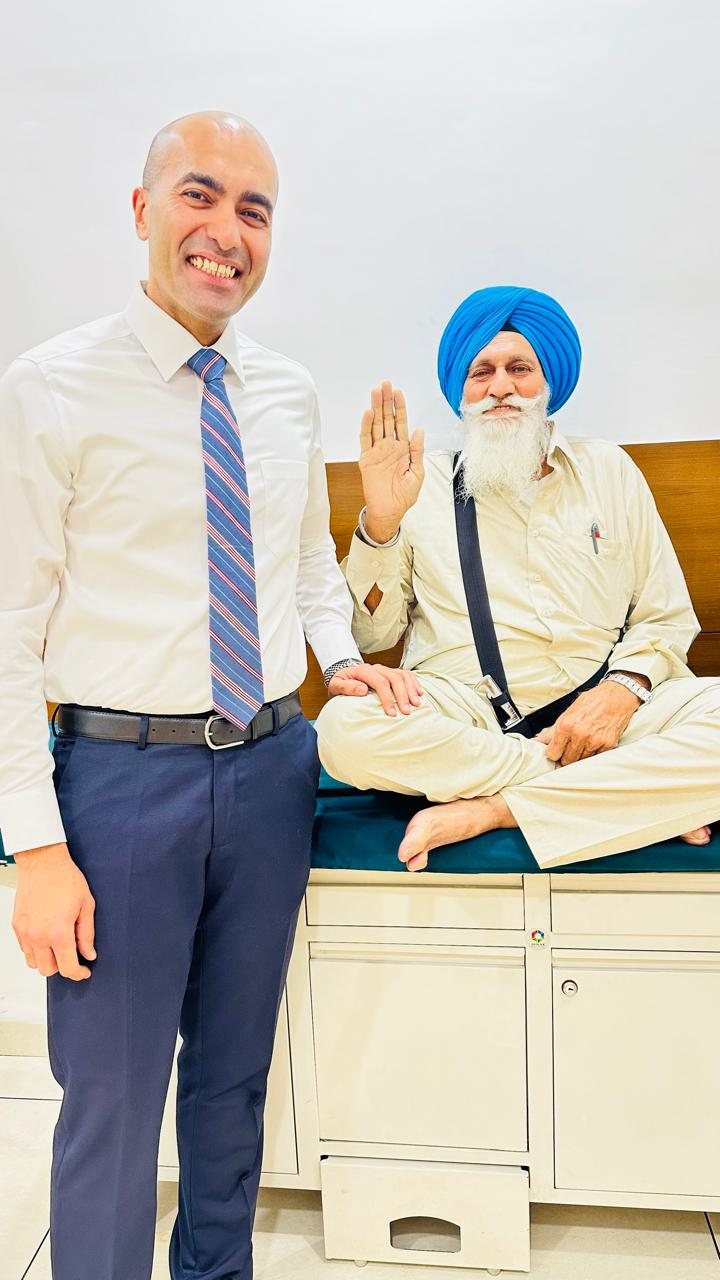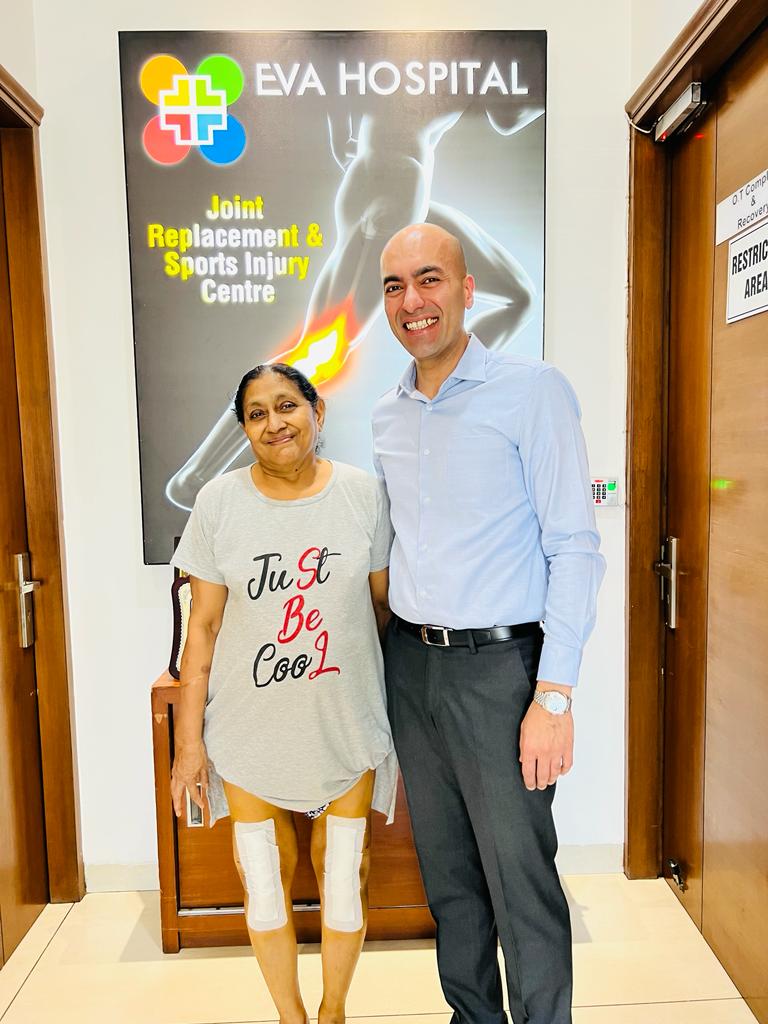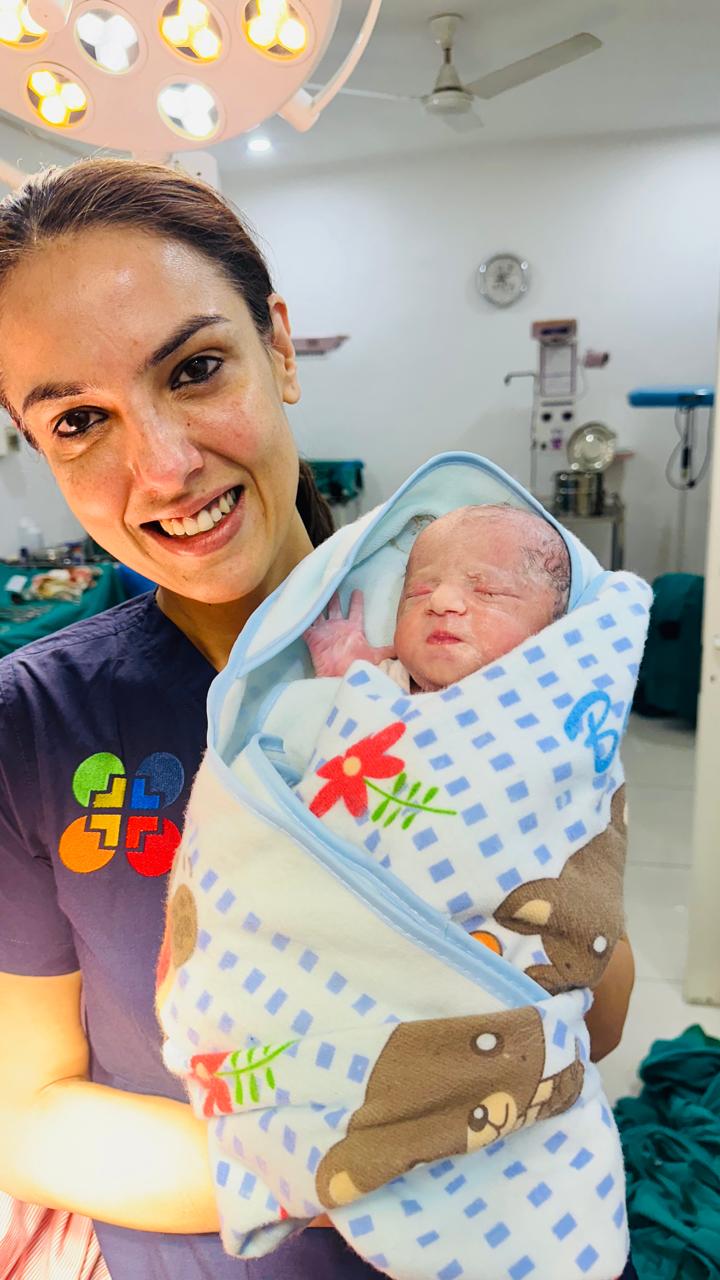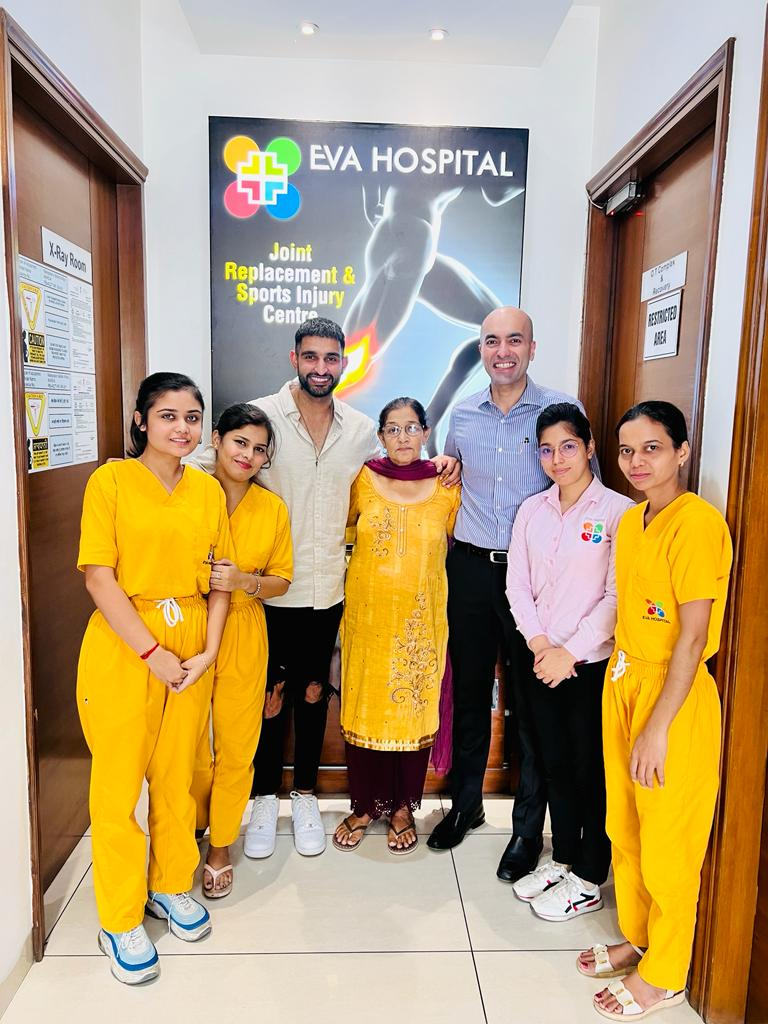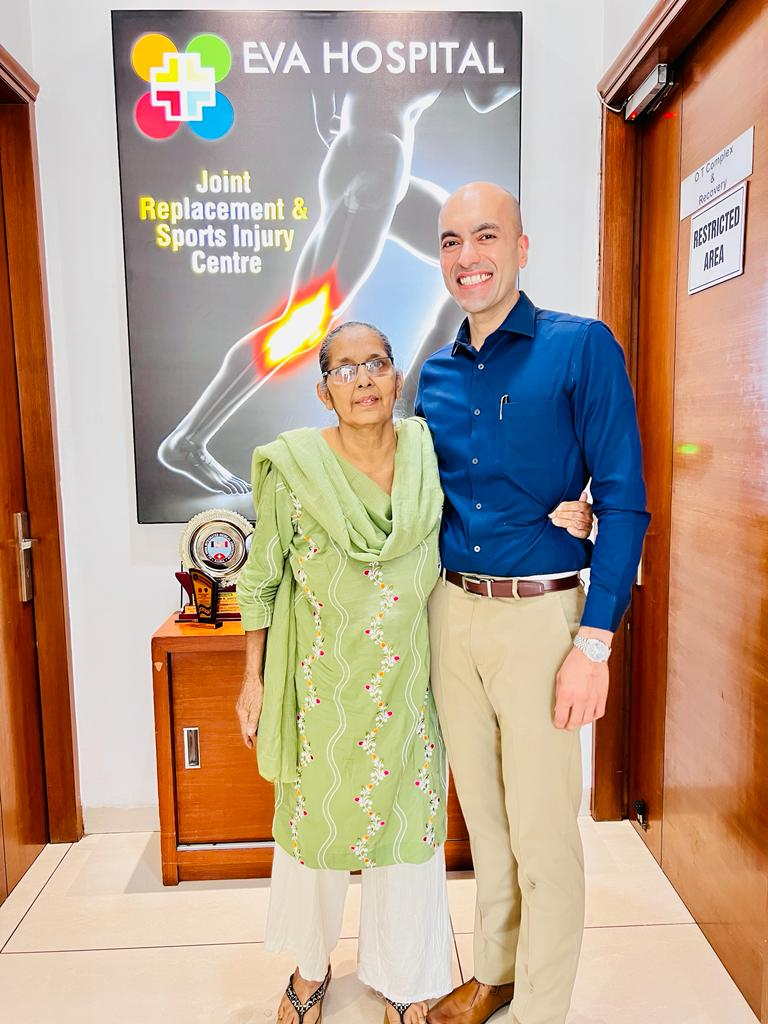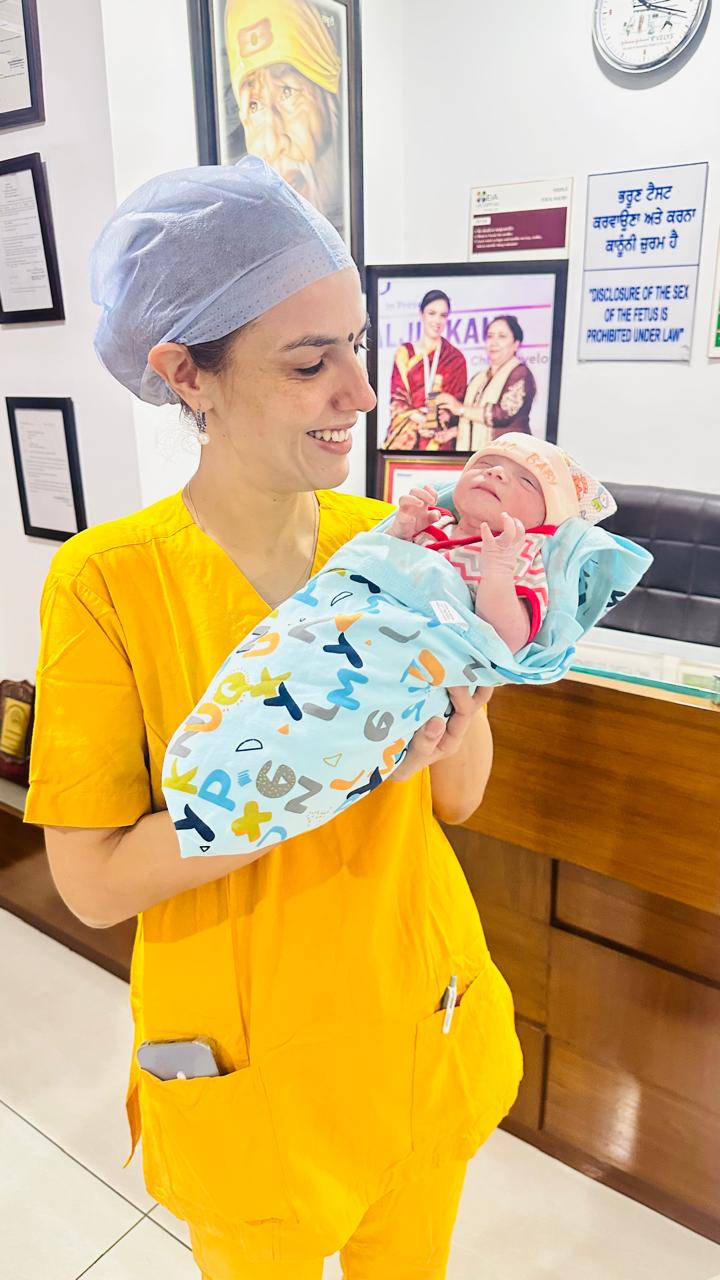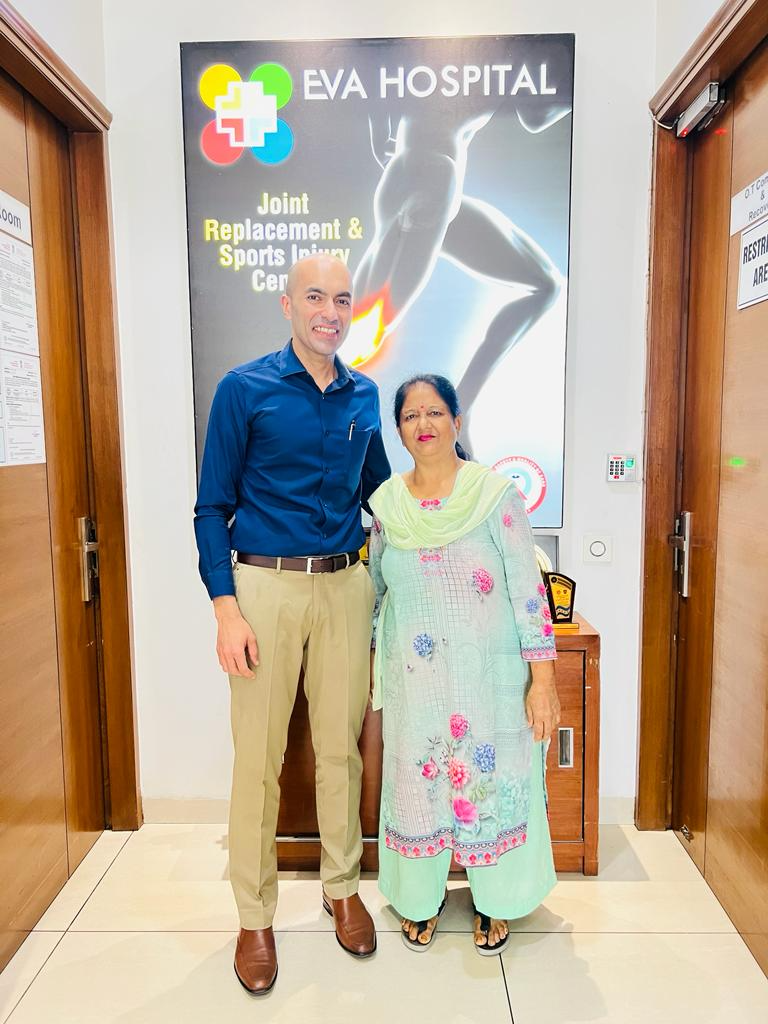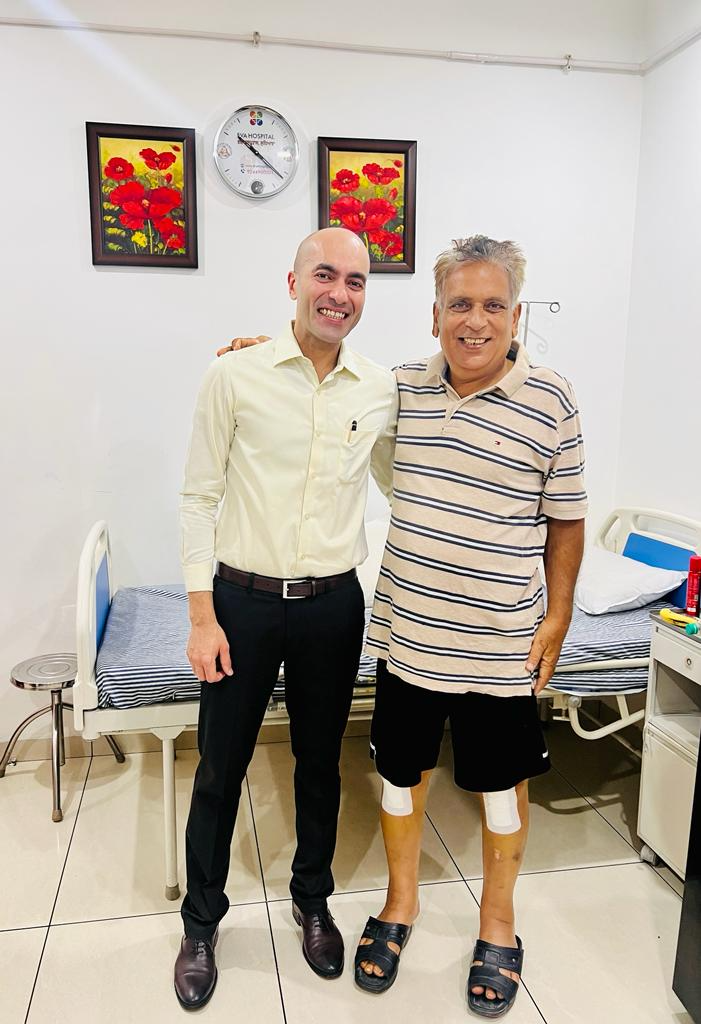Knee Replacement Surgery- an introduction
Knee replacement surgery is also known as knee arthroplasty is a surgical technique to repair the knee joint and attach plastic and metal prosthetic parts.
The damaged cartilage and bone are cut away during the procedure and an artificial joint is put in place.
This surgery might be recommended to someone with a serious knee injury or pain from chronic arthritis, based on your knee’s strength, stability, and range of motion.
Various surgical techniques and prostheses can be used, based on your weight, age, knee size and shape, activity level, and overall health.
Things to expect after knee replacement surgery:
You will need to stay in the hospital’s recovery room for observation after the surgery is over. Patients can usually return to their hospital rooms within a few hours after their pulse, blood pressure, and breathing is stable.
But as a knee replacement is major surgery, the patient will need to be in the hospital for a few days before returning home. Physical therapy begins during the hospital time itself.
Before the discharge, the medical team will have a transition plan to help with continued physical therapy and pain management.
You must be diligent about following these instructions to retrieve the range of motion and strength needed in the joint.
- Rest and Ice: The knee is swollen and tender after the surgery, so you will need to follow the doctor’s instructions of keeping the leg elevated and icing the joint.
- Medications: The medications prescribed by your doctor will help with pain management and are also important to reduce inflammation. Sometimes antibiotics are required to prevent infection.
- Home Modifications: Certain modifications might be needed to help you navigate your home. As the knee heals, you must use crutches or a walker. Other modifications, such as handrails, a shower bench, a reaching stick, and removing loose cords and rugs that can cause a fall is recommended.
Recovery Timeline for Knee Surgery
https://youtu.be/bKTF__2Yrng
An overview of what you can expect during these 12 weeks:
Days 1 – 3: Rehabilitation will begin as soon as you wake up from the surgery.
A physical therapist will work with you on straightening and bending the knee in the hospital and also help you to stand up and walk using an assistive device such as walkers, crutches, and canes.
Little pain, swelling, and bruising are normal after the surgery. Start using your knee as soon as possible, without pushing yourself too far too soon. Your doctor and therapist will help you set practical goals.
Usually, you will be discharged from the hospital within a few days and sent home with particular instructions for care, medication, and therapy.
Week 1-2
By the end of the first 2 weeks, you will be getting stronger and you should be able to increase your exercise and other activities.
You and your physical therapist will be working towards bending your knee to 90 degrees, maybe with little difficulty due to pain and swelling.
Your doctor will probably shift you to lower-dose pain medication by now.
You can probably walk and stand for more than 10 minutes. Bathing and dressing should be easier.
Usually, after 7–10 days, you should be able to fully extend your knee straight out.
Week 3: By week three, you will be a little more mobile, and the pain will be decreasing. You will be able to move around more freely and require fewer and less powerful pain medications.
The daily routine should include exercises to improve your mobility and motion, with or without your therapist.
You might not need a walker or crutches anymore as your knee would be stronger.
Weeks 4 – 6: The improvements in your knee during this time will be most dramatic and noticeable if you have been consistent with your rehab and exercise activities.
There will be an immense improvement in your knee, including bending and strength. The swelling and inflammation would have gone remarkably down. You would be able to perform more everyday tasks, like cooking and cleaning.
You can return to work in 4 to 6 weeks if you have a desk job. If your job requires walking, travel, or lifting, it may be up to your doctor to decide.
Some people may be able to drive within 4 to 6 weeks of surgery with the permission of their surgeon.
Travel is mostly possible after 6 weeks because the prolonged sitting before this, during travel may increase the risk of a blood clot.
Weeks 7 – 11: The rehabilitation and physical therapy will continue. By this time, you will be working on a range of mobility possibly to 115 degrees, and strengthening your knee and the surrounding muscles.
Physical therapy continues up to 12 weeks. Your exercises will be modified as your knee improves. You would be on the road to fast recovery with significantly less stiffness and pain.
Walking a couple of blocks without any type of assistive device may be possible. More physical activities, including recreational walking, swimming, and bicycling would be possible by now.
Week 12: Normal activities can be resumed but you will still need to avoid high-impact exercise like aerobics, running, basketball, skiing, etc.
You will have much less pain. Keep in touch with your surgeon and therapist. Avoid starting new activities without checking with your doctor first.
Week 13 and beyond: The knee keeps on improving gradually over time and pain decreases. It may take up to 3 months to return to most activities, and 6 months to a year before your knee is strong and resilient to its full extent.
Follow Up: The follow-up appointments to talk to your doctor about recovery are an important part of the recovery. Talk to your doctor if you notice unusual symptoms, such as redness, fever, incision drainage, or increased pain.
Overview
The 12 weeks of Rehabilitation and recovery is a crucial stage in the total knee replacement surgery and staying committed to a plan, doing the maximum possible each day makes the recovery faster, boosting your chances for long-term success.
Who Do I Contact in Ludhiana or Punjab for Total Knee Replacement Surgery?
If you need to talk to a doctor about knee replacement surgery, it’s time to schedule a consultation with our experienced team at Eva Hospital.
Call us to book an appointment with Dr. Tanveer Bhutani






